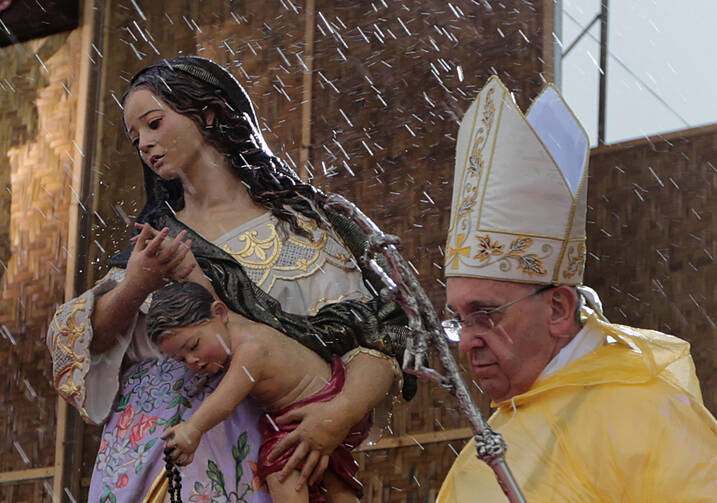“We are not owners of the earth,” the Catholic Bishops’ Conference of the Philippines said in a statement released this week. “We are its stewards, to keep and cherish and nurture its resources not only for ourselves but for future generations.”
In the statement, “Stewards, not Owners,” posted on July 20, the bishops of the Philippines continued the church’s full court press on climate change, seeking to turn the ecological warnings and issues raised by the pope’s recent encyclical into real-world policy shifts. Pope Francis has spoken of his experience in Tacloban City, the Philippines, a community hard-hit by Typhoon Yolanda, as one of his inspirations for “Laudato Si’,” a papal call to action on climate change, care for creation and social and economic justice.
The Philippine bishops, recognizing the potential of “Laudato Si’” to influence the international dialogue, say prioritizing the impact of climate change on the world’s most vulnerable communities is how Christians today “[attend] to the needs of the least of our brothers and sisters; it is how, today, we must wash each others’ feet.”
“It is a Christian obligation to be concerned with ecology and with climate change as a direct consequence of the moral concept of Stewardship,” they write, “and a concomitant of Christian charity.”
France will be hosting “COP21,” the 21st Session of the Conference of the Parties to the United Nations Framework Convention on Climate Change in Paris from November 30th to December 11th; the timing of the publication of “Laudato Si’” suggest Pope Francis hopes to have an impact on the discussion there.
The Philippine bishops agree with that strategy, pledging to sponsor local conferences and symposia that will prepare Filipinos for a properly participation in the global discussion. They write, “All persons of goodwill must train their eyes on Paris…and make the issues that will be discussed there the issues and concerns of all.” Climate change, they write, threatens “deleterious and devastating effects on all, but especially on impoverished and struggling nations and communities.”
Like Francis, the bishops’ statement connects the issue of climate change with the challenge of economic justice today and into the future. The bishops say, “The world is a gift which we have freely received and must share with others. Since the world has been given to us, we can no longer view reality in a purely utilitarian way, in which efficiency and productivity are entirely geared to our individual benefit.”
And they ad that the obligation to manage development and protect creation includes a profound responsibility to the future: “The global economic crises have made painfully obvious the detrimental effects of disregarding our common destiny, which cannot exclude those who come after us. We can no longer speak of sustainable development apart from intergenerational solidarity.”
They add that “intergenerational solidarity is not optional, but rather a basic question of justice.”








